Olive Oil For Acne Scars: What Science Says And Safe Skin Tips
Understand how this lightweight oil may support your skin as it heals from acne scars.
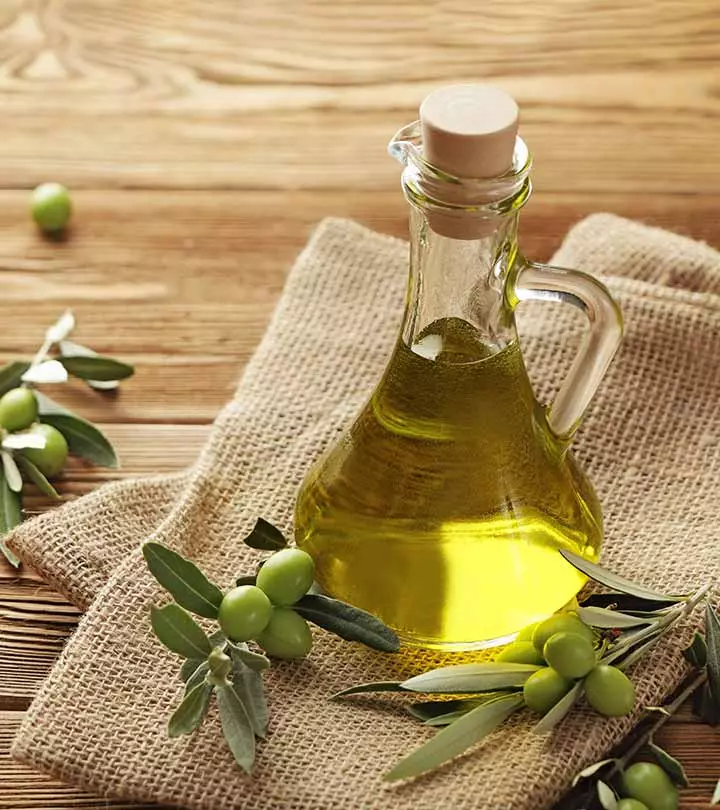
Image: Shutterstock
Acne develops when your pores get clogged with dirt, bacteria, makeup, and sebumi An oily substance produced by sebaceous glands in the body that creates a protective layer over the skin. , resulting in acne breakouts all over your skin. Sometimes, the acne pores swell, and a breakdown in the pore walls results in acne scars forming. Some people strongly believe that olive oil is good for acne scars. In this article, we find out what research says about this and how to use olive oil for treating acne scars.

In This Article
Can Olive Oil Treat Acne Scars?
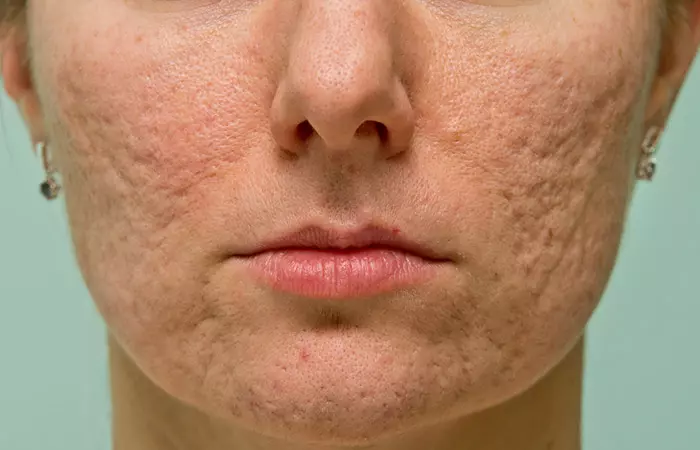
Though there are many benefits of olive oil for skin, however, its effectiveness for acne-prone skin is still a matter of contention. While some people endorse the virtues of olive oil for acne treatment and acne scar healing, there’s very little scientific evidence to prove these effects. Most experiments involving olive oil are conducted on mice. There is no concrete evidence to prove its effectiveness in treating human skin conditions.
However, besides cooking, the general population uses olive oil on a large basis as a remedy for treating various skin conditions. It is also used in a number of cosmetics. But does it actually work for acne scars? Here’s what science says.
- An animal study found that oleic acid, a fatty acid that makes up to 83% of olive oil, triggered acne (1).
- Another study found that olive oil reduced skin integrity and caused mild erythemai A skin condition that occurs due to a mild allergic reaction to a medication or infection, causing symptoms like inflamed skin. in adults. The experiment also showed that olive oil might damage the skin barrier and promote the development of and worsen atopic dermatitisi A chronic skin condition that causes inflammation, redness, and itchiness on the skin. Also commonly known as eczema. (2).
- The oleic acid in olive oil can aid the breeding of acne-causing bacteria (P. acnes) on the skin. It helped the bacteria attach themselves to the follicles (3).
- Olive oil has a comedogenici The potential of a substance to clog pores, leading to the formation of whiteheads and blackheads on the skin. rating of 2, which means it may clog the skin pores (4).
These studies clearly indicate that olive oil cannot treat acne or acne scars. However, if you have acne-free skin and want to use olive oil to moisturize it and protect it against UV damage, here’s how you can use it.
Key Takeaways
- Olive oil helps in inflammation reduction and has anti-oxidants to heal wounds.
- Olive oil moisturizes, hydrates, fights signs of aging, and fights skin cancer.
- Olive oil massage increases blood circulation, promotes cell regeneration, and exfoliates the skin.
- Olive oil can clog pores and cause acne and atopic dermatitis. Thus, perform a patch test before applying.
Olive Oil For The Skin
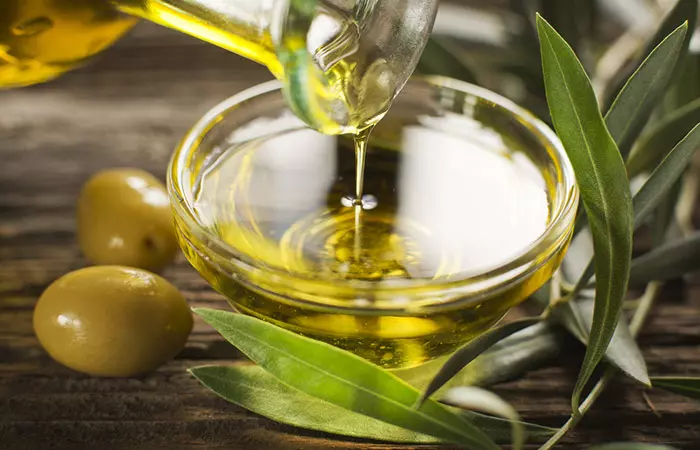
Including olive oil for skin in your daily routine will provide deep moisturization and protection against dryness.
- A mice study showed that the phenolic compounds in olive oil could prevent oxidative stress (the process of damaging skin cells) (5). Another mice study shows that olive oil may help fight sun damage, prevent photoagingi Premature aging due to continued exposure to UV light that can also lead to other conditions like pigmentation. , and reduce skin tumors (6). However, more studies are needed to establish this effect on human skin.
- Olive oil possesses antibacterial properties (7). But more scientific studies are needed to prove its effectiveness in treating bacteria on the skin.
- Other potential benefits of using olive oil on the skin due to its anti-inflammatory and antioxidant effects are its ability to delay skin aging, promote wound healing (dermal reconstruction), and prevent skin cancer. However, these effects were seen in mice, and more studies are needed on humans (5).
- Olive oil contains vitamin E, vitamin K and beta-carotene (precursor for vitamin A) (8). These nutrients may help keep your skin healthy.
- Some anecdotal evidence suggests that olive oil can help moisturize and soften the skin.
- Olive oil is a popular choice for face massage, and for good reason. It may promote blood circulation and relax the facial muscles when used in a facial massage treatment. This may help reduce tension and promote a healthy glow. Olive oil’s fatty acids also serve as an effective emollient (9). This is particularly beneficial for those with dry or sensitive skin, as it can soothe and hydrate the skin. Thus, it is an excellent choice for a calming facial massage. However, as with any skin care product, performing a patch test is advisable to ensure compatibility with your skin type before incorporating olive oil into your facial massage routine.
 Quick Tip
Quick TipHow To Use Olive Oil On The Skin
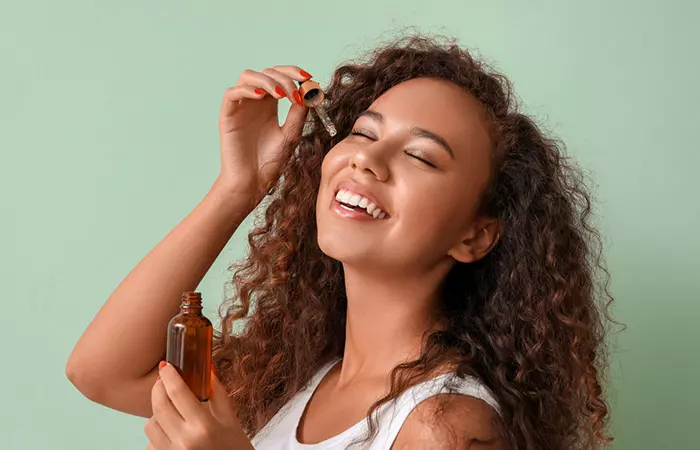
If you are aiming for radiant skin, using olive oil for glowing skin offers hydration that results in a luminous complexion. Understanding how to use olive oil for glowing skin is crucial, and being prepared with this knowledge can help you achieve your skincare goals. Here is how to use it:
- Apply the oil on your face in circular motions with your fingertips. Gently massage your nose, cheeks, and forehead.
- Dip a cloth in hot water and hold it against your face until it cools down to room temperature.
- Remove the cloth and rinse it with hot water. Press the damp cloth and rub it all over your face gently to remove the remaining oil on your skin.
- Pat your face dry with a soft towel.
 Quick Tip
Quick TipThere are several other ways to use olive oil for skin. Learn more below.
How To Incorporate Olive Oil Into Your Skincare Routine
Olive oil can be a flexible addition to any skincare regimen with so many skin-benefitting properties. Here are some possible steps to successfully use it:
- Using a cotton pad soaked in olive oil to gently remove makeup. It will make your skin clean and smooth.
- Mix olive oil with essential oils like tea tree or lavender. Together, these oils support smooth skin, lessen irritation, and offer nourishment.
- To seal in moisture, lightly coat your face or body with olive oil after cleansing. It’s particularly good for older or dry skin.
- To make a DIY scrub, combine sea salt or sugar with olive oil. To encourage smoother, more glowing skin and get rid of dead skin cells, gently massage your skin.
- For a nighttime hydration boost, gently apply olive oil to your hands or face before bed. This aids in restoring moisture as you sleep.
Olive oil doesn’t treat acne scars. However, there are other treatment options available that can improve their appearance. Take a look.
Other Treatments For Acne Scars
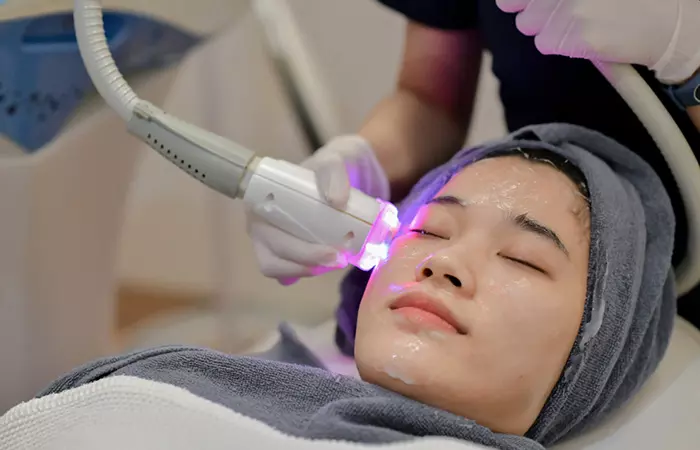
- Topical Retinoids – Over-the-counter medications that contain glycolic acid may help treat acne scars.
- Dermal Fillers – Plumping depressed contours caused by acne pits.
- Microdermabrasion – Remodelling skin’s structure (removing the skin’s outer layer).
- Laser treatment – Using intense light to stimulate dermal fibroblasts.
- Needling – Puncturing the outer layer of the skin with sharp needles to boost collagen.
- Natural Remedies – Botanicals or essential oils that may lighten the acne scars.
Jen, a blogger, shared her experience with microneedling for her shallow acne scars. The microneedling process involved creating controlled injuries in the skin using tiny needles to stimulate collagen and elastin production, improve skin texture, and reduce scars. She summed up her results, “It was amazing. I was still a little pink, but overall, my face looked pretty damn good. Sadly, I did not take any pictures of this, and it only lasted for the first 48 hours (i).” She wrote that her esthetician suggested using chemical peels along with microneedling for better results.
The Final Word
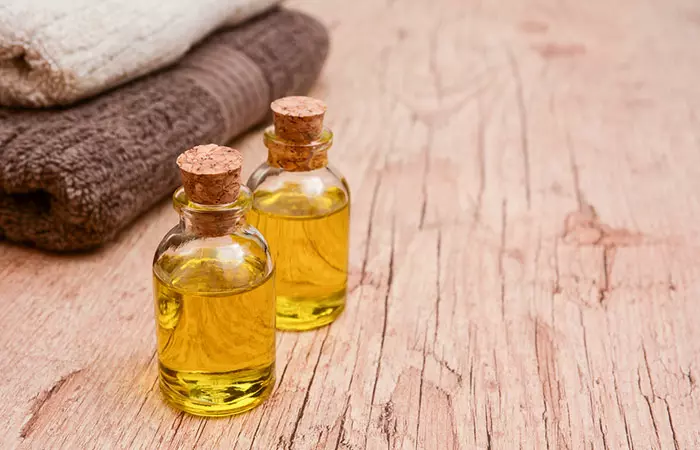
Though anecdotal evidence suggests that olive oil has some skin benefits, research suggests otherwise. Olive oil can clog skin pores, aggravate conditions like atopic dermatitis, and cause acne in healthy skin. Hence, consult your dermatologist before using olive oil on your face. Remember to do a patch test on a small portion on your inner arm or elbow and check for a reaction within 24 hours.
If you want to use olive oil on your skin for other purposes, there is no harm. However, if you have oily or acne-prone skin, olive oil can worsen the condition.
If you want to get rid of acne scars permanently, consult a dermatologist for the best treatment option based on your skin type and extent of scarring.
Infographic: Benefits Of Olive Oil For The Skin
Olive oil, being packed with antioxidants and essential fatty acids, deeply nourishes, hydrates, and rejuvenates the skin. Try it yourself to see the difference it makes! Your skin will feel smooth and supple. Check out the infographic below to know more about the benefits of using olive oil for your skin.
Some thing wrong with infographic shortcode. please verify shortcode syntaxOlive oil, like other natural oils, has many benefits, but you may want to refrain from using it for removing acne scars as there is no scientific evidence suggesting its efficacy. On the contrary, olive oil has been shown to promote bacterial growth on the surface of the skin and increase the likelihood of acne formation. So, instead of using olive oil for acne scars, you may choose alternatives like topical retinoids, needling, essential oils or botanicals, and microdermabrasion, which are safer and more effective. However, individuals with skin not prone to the adverse effects of olive oil may benefit from using it in their skincare regime, especially as a moisturizer.
Frequently Asked Questions
What oil is best to treat acne scars?
Tea tree oil possesses antimicrobial properties that can help reduce mild acne (10).
Is olive oil bad for acne?
Yes, it can breed the bacteria that cause acne. Hence, it is not recommended for treating acne.
Is it OK to apply olive oil to the face every day?
Yes, it is safe to add olive oil to your daily skin care regimen, especially if you have dry skin. Adding this oil to your beauty routine will not only moisturize your skin but also help reduce the signs of aging and wrinkles.
Does olive oil lighten dark spots?
Some believe olive oil has a skin lightening effect thanks to its monounsaturated fats and antioxidants. However, research is limited in this regard.
Can I leave olive oil on my face overnight?
This depends on your skin type. While those with dry skin can leave the oil on their face overnight, it may not be a good idea for those with oily or acne-prone skin (as it may aggravate breakouts).
Illustration: How To Use Olive Oil For Acne Scars: Does It Actually Work?
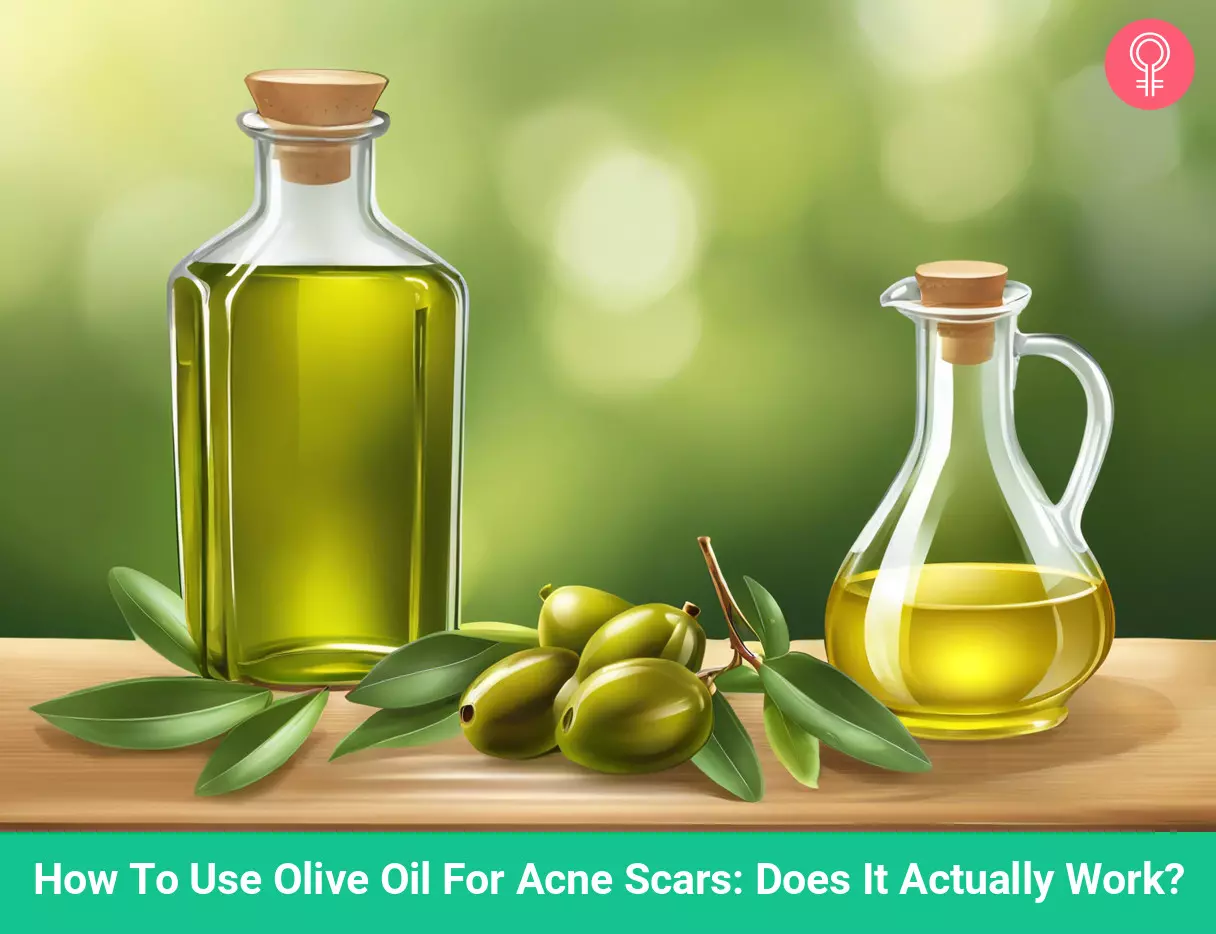
Image: Stable Diffusion/StyleCraze Design Team
Unlock the acne-diminishing power of olive oil. From reducing acne scars to improving skin texture, check out this video to know how to use this oil for maximum results.
Personal Experience: Source
StyleCraze's articles are interwoven with authentic personal narratives that provide depth and resonance to our content. Below are the sources of the personal accounts referenced in this article.
i. My micro-needling experience,https://jenjackson153.wordpress.com/2015/11/23/microneedling/
References
Articles on StyleCraze are backed by verified information from peer-reviewed and academic research papers, reputed organizations, research institutions, and medical associations to ensure accuracy and relevance. Read our editorial policy to learn more.
- Motoyoshi, K. “Enhanced comedo formation in rabbit ear skin by squalene and oleic acid peroxides.” The British journal of dermatology vol. 109,2 (1983): 191-8.
https://pubmed.ncbi.nlm.nih.gov/6223652/ - Danby, Simon G et al. “Effect of olive and sunflower seed oil on the adult skin barrier: implications for neonatal skin care.” Pediatric dermatology vol. 30,1 (2013): 42-50.
https://pubmed.ncbi.nlm.nih.gov/22995032// - Gribbon, E M et al. “Interaction of Propionibacterium acnes with skin lipids in vitro.” Journal of general microbiology vol. 139,8 (1993): 1745-51.
https://pubmed.ncbi.nlm.nih.gov/8409917// - Fulton, Jr . James E.. “Comedogenicity and irritancy of commonly used ingredients in skin care products.” (1989).
https://www.semanticscholar.org/paper/Comedogenicity-and-irritancy-of-commonly-used-in-Fulton/578cd23064f4be5f9f623e9cb9dbfe4a6c29eef2 - Donato-Trancoso, Aline et al. “Olive oil-induced reduction of oxidative damage and inflammation promotes wound healing of pressure ulcers in mice.” Journal of dermatological science vol. 83,1 (2016): 60-9.
https://pubmed.ncbi.nlm.nih.gov/27091748/ - Budiyanto, A et al. “Protective effect of topically applied olive oil against photocarcinogenesis following UVB exposure of mice.” Carcinogenesis vol. 21,11 (2000): 2085-90.
https://pubmed.ncbi.nlm.nih.gov/11062172// - Medina, Eduardo et al. “Antimicrobial activity of olive oil, vinegar, and various beverages against foodborne pathogens.” Journal of food protection vol. 70,5 (2007): 1194-9.
https://pubmed.ncbi.nlm.nih.gov/17536679/ - Casado-Díaz, Antonio et al. “Influence of olive oil and its components on mesenchymal stem cell biology.” World journal of stem cells vol. 11,12 (2019): 1045-1064.
https://www.ncbi.nlm.nih.gov/pmc/articles/PMC6904865/ - Hernández-Vásquez, Akram et al. “Efficacy and Safety of Topical Application of Olive Oil for Preventing Pressure Ulcers: A Systematic Review and Meta-Analysis of Randomized Controlled Trials.” International journal of environmental research and public health vol. 19,22 14921. 13 Nov. 2025, doi:10.3390/ijerph192214921
https://www.ncbi.nlm.nih.gov/pmc/articles/PMC9690722/ - Enshaieh, Shahla et al. “The efficacy of 5% topical tea tree oil gel in mild to moderate acne vulgaris: a randomized, double-blind placebo-controlled study.” Indian journal of dermatology, venereology and leprology vol. 73,1 (2007): 22-5.
https://pubmed.ncbi.nlm.nih.gov/17314442/
Read full bio of Dr. Suchana Marahatta
Read full bio of Shaheen Naser
Read full bio of Anjali Sayee
Read full bio of Monomita Chakraborty





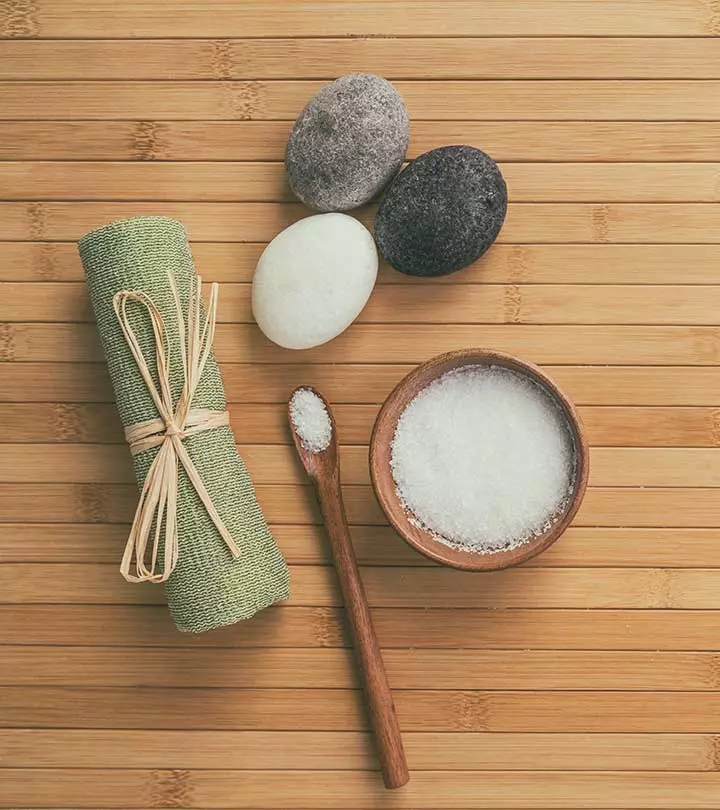
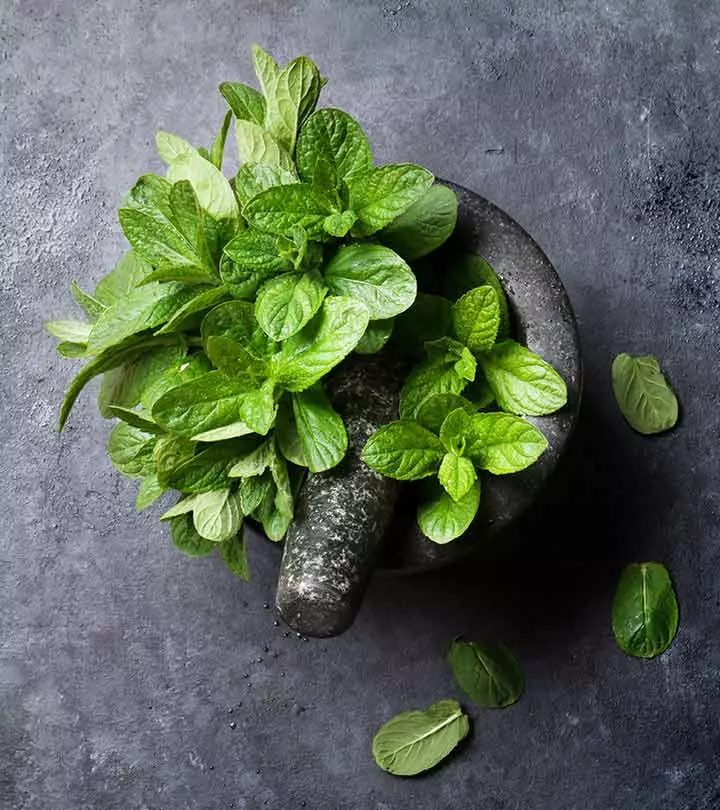
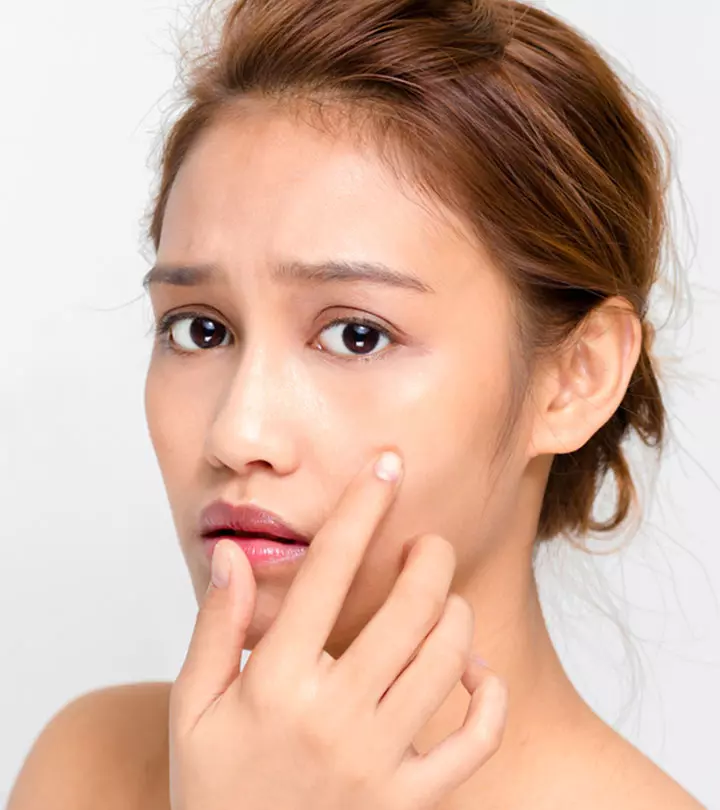
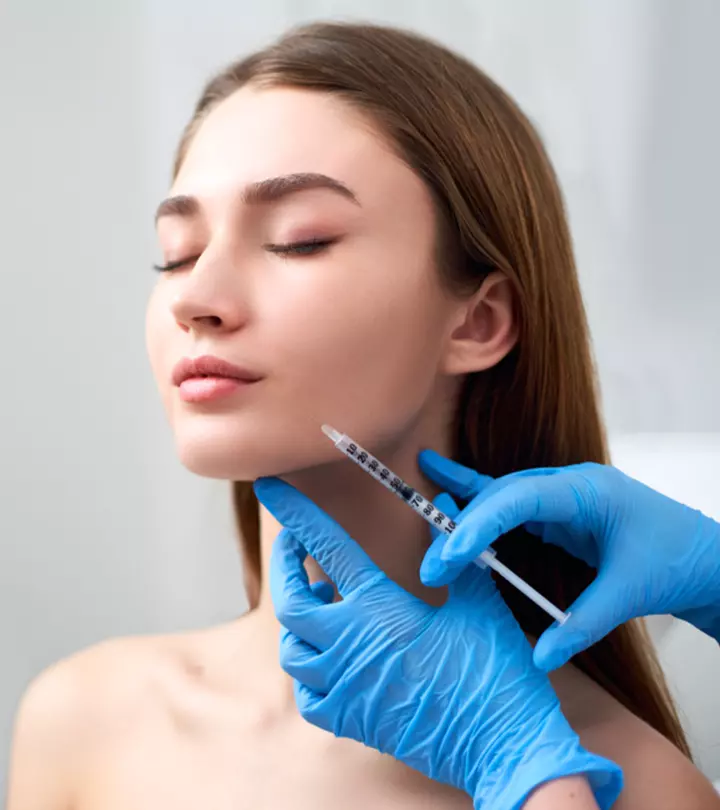
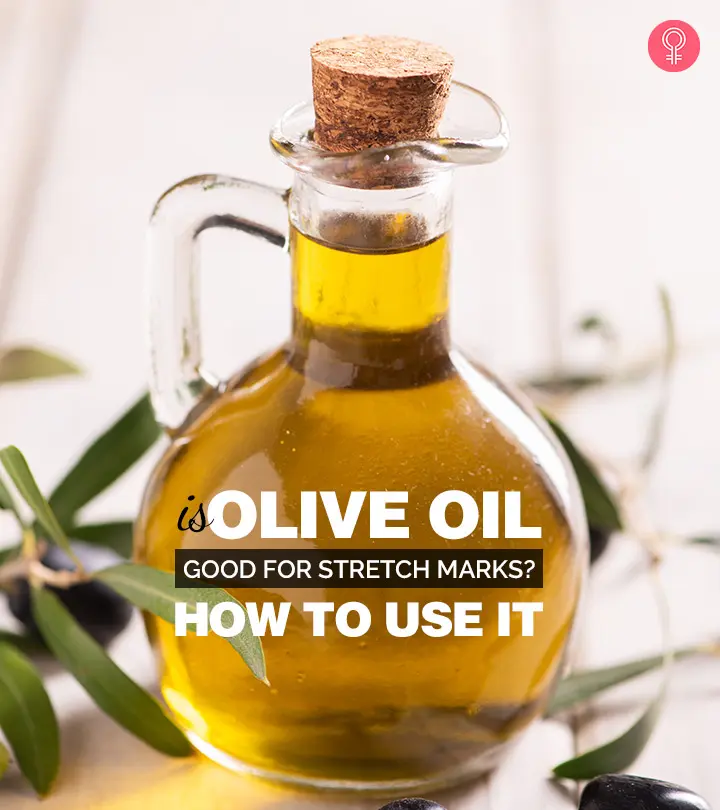
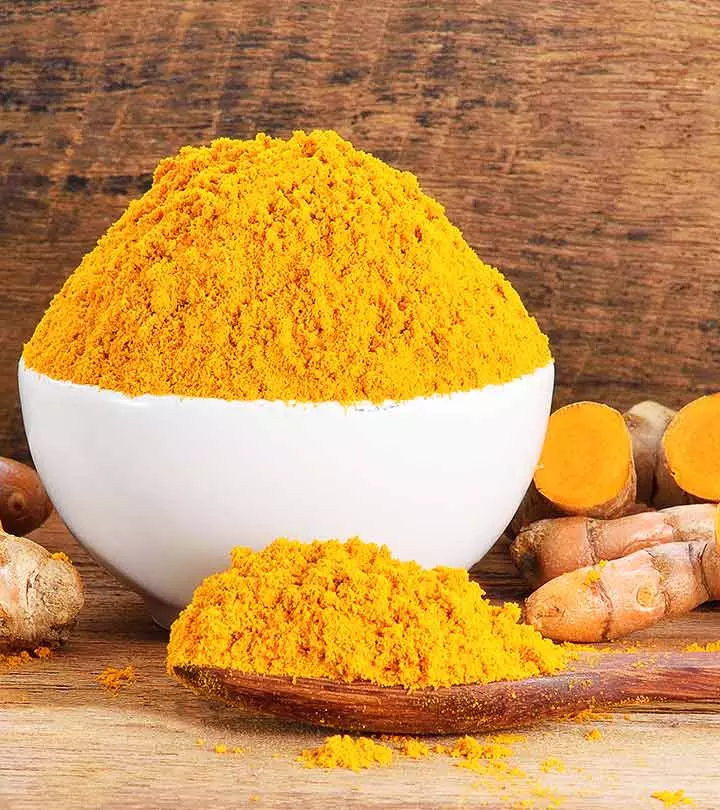
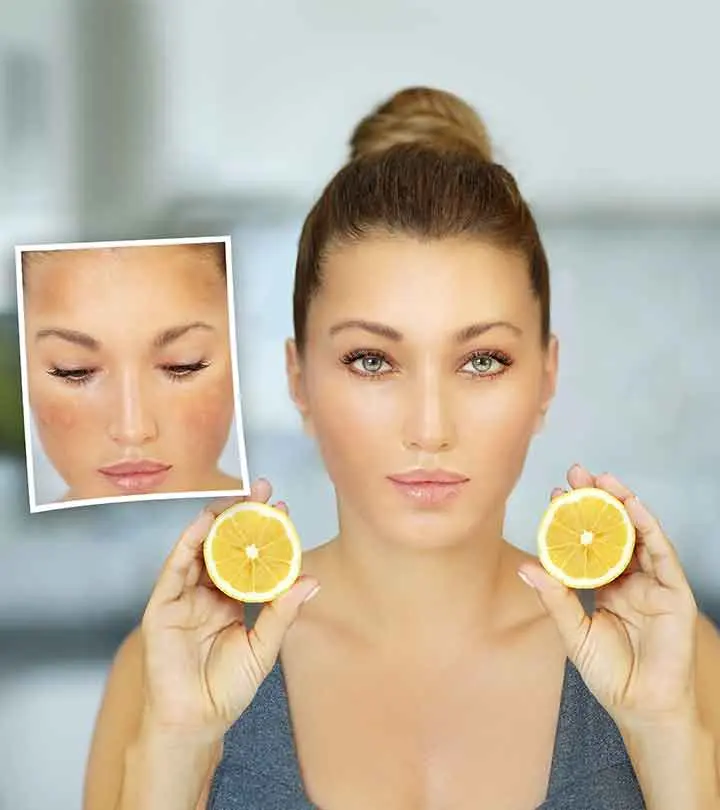
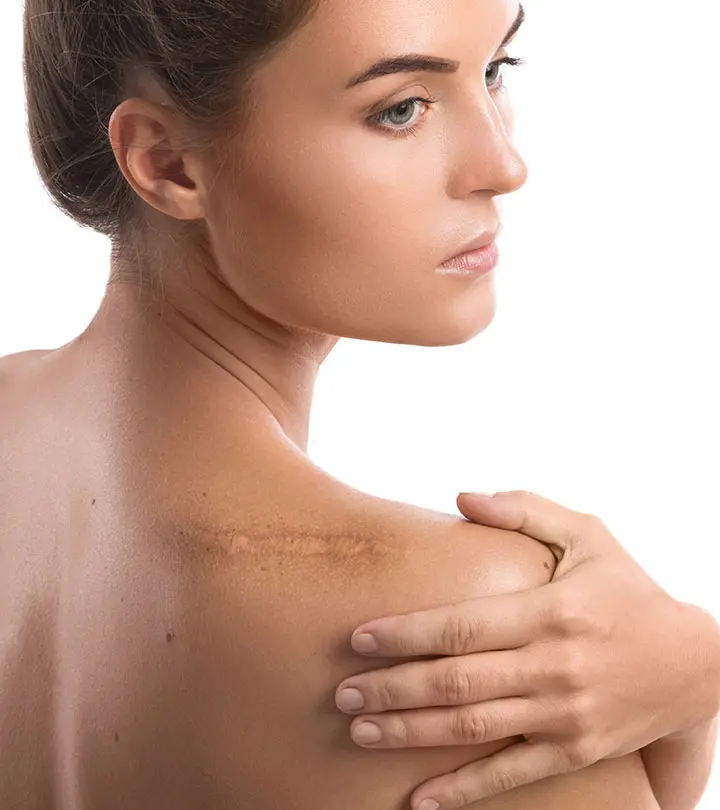
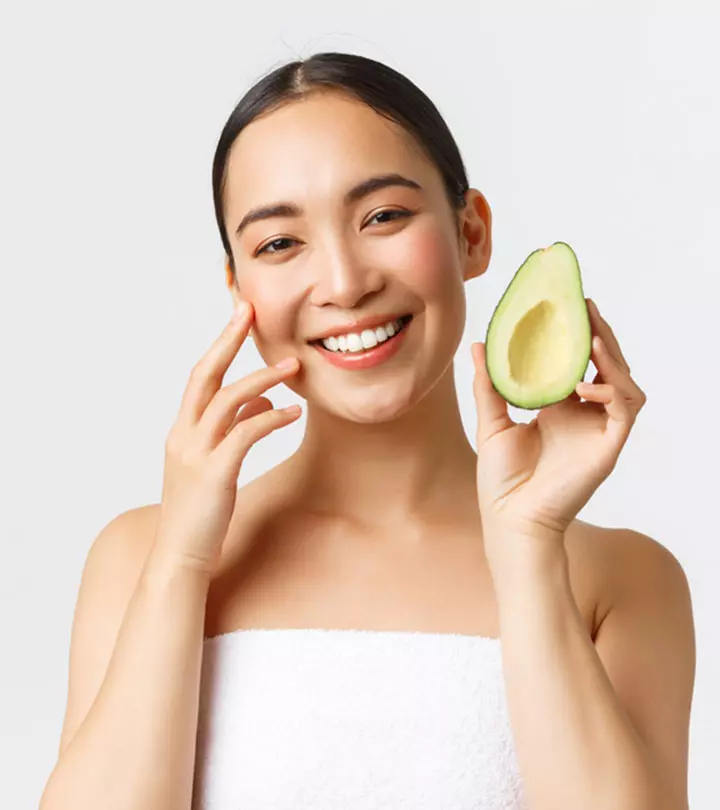
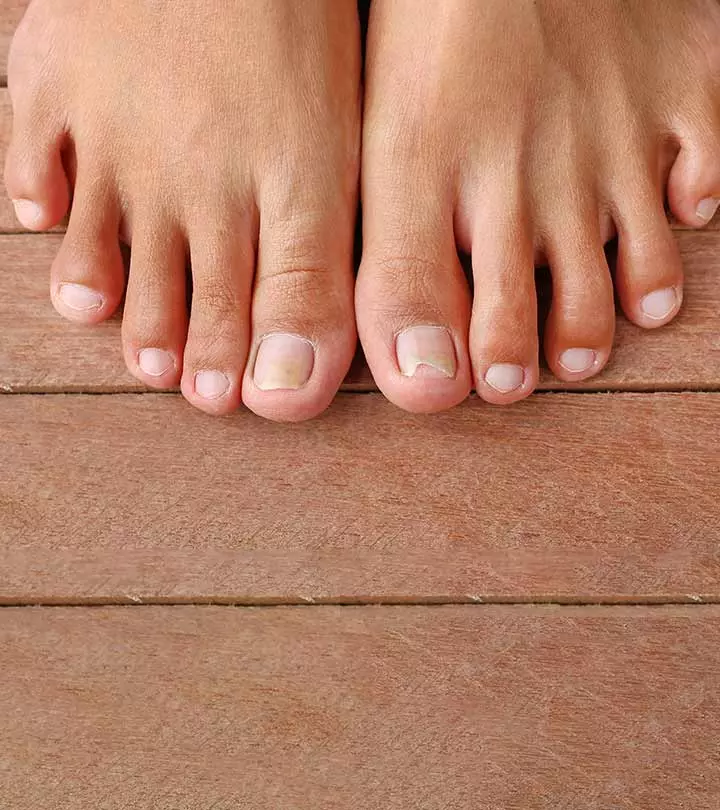

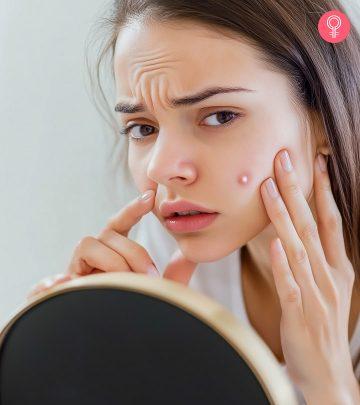


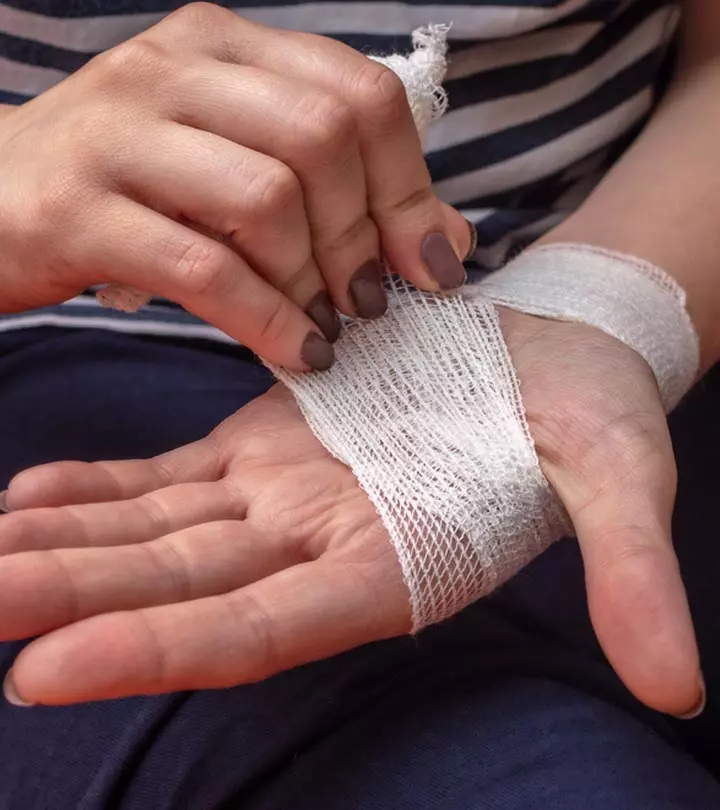
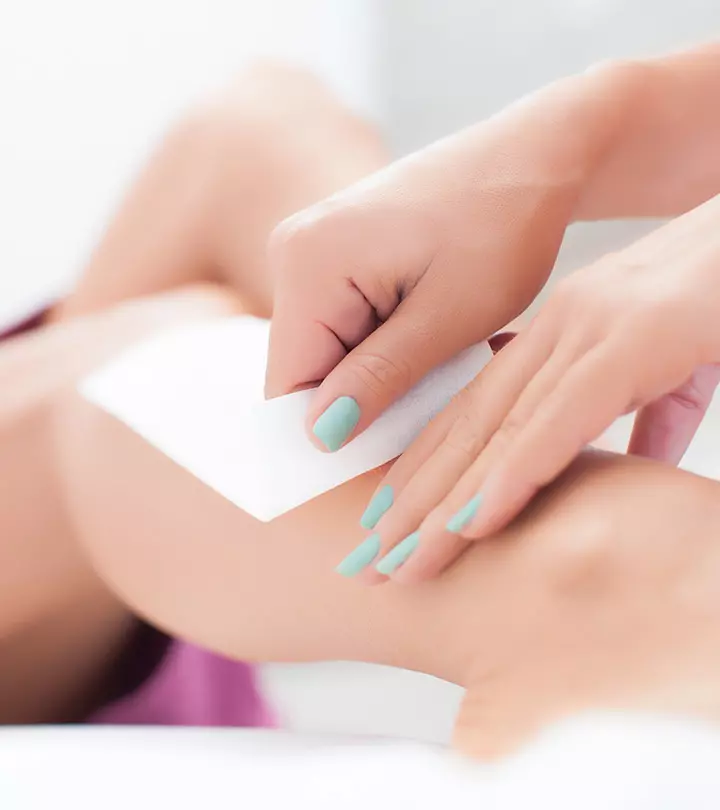
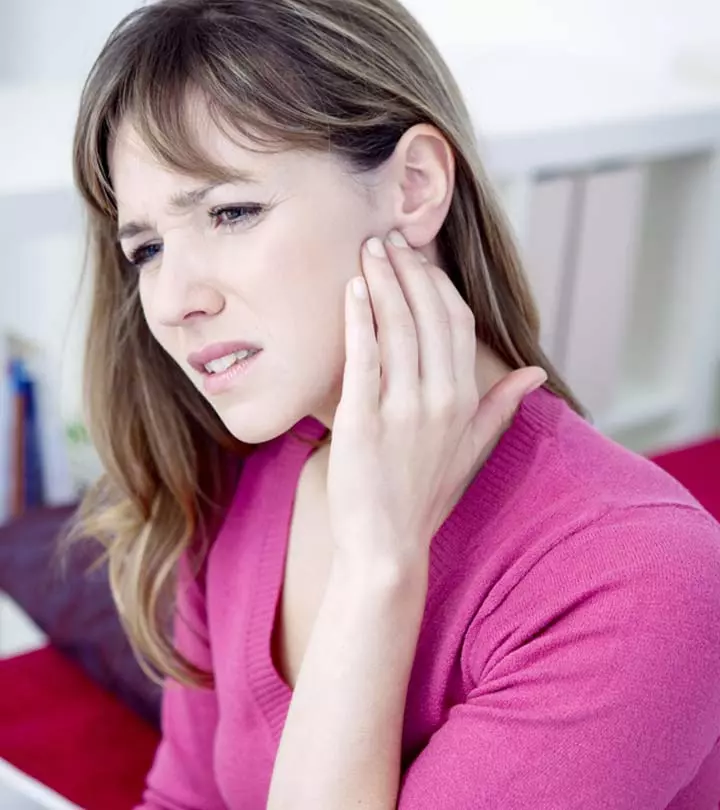
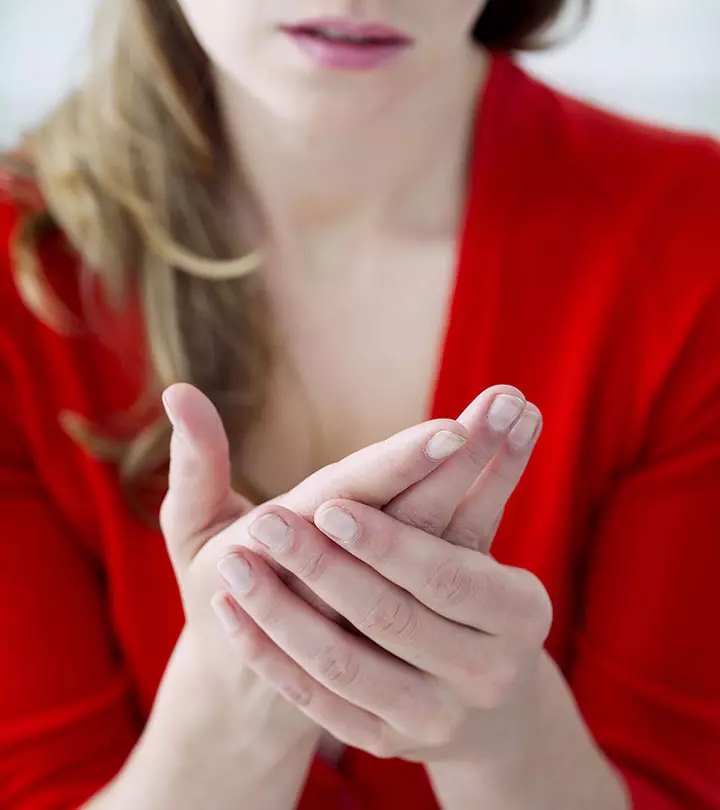


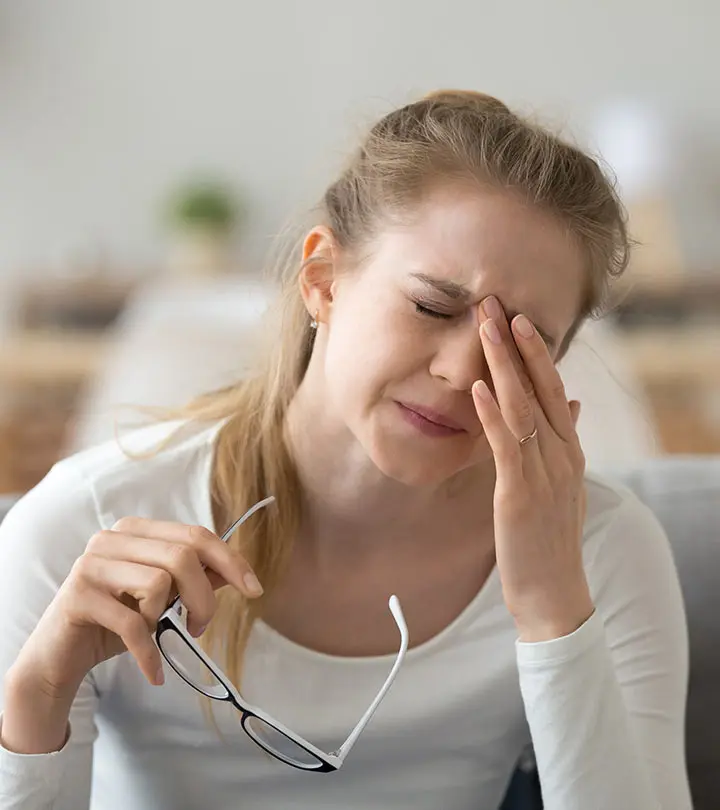
Community Experiences
Join the conversation and become a part of our empowering community! Share your stories, experiences, and insights to connect with other beauty, lifestyle, and health enthusiasts.